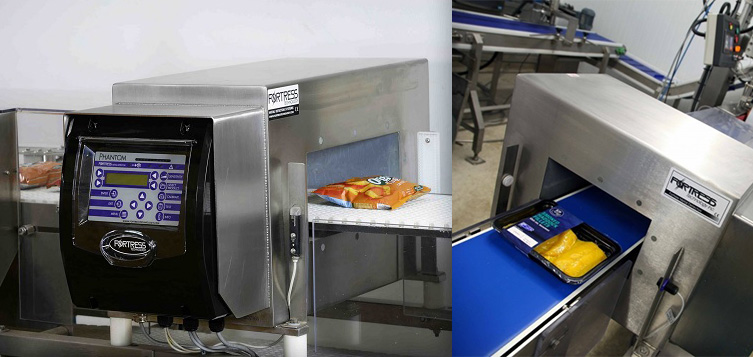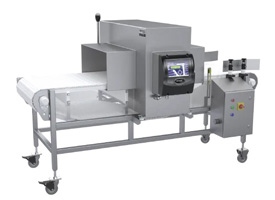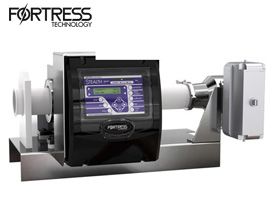Consumer Trust and Food Inspection: Exploring the Link

Food inspection is a vital aspect of our global food system, responsible for safeguarding the health of consumers and maintaining the reputation of food businesses. It represents an essential tool to mitigate risks associated with foodborne diseases, chemical contamination, and misleading food information. However, at the heart of this complex network lies a critical yet often overlooked component - consumer trust. The following article explores the intricate link between food inspection systems and consumer trust.
The Building Blocks of Trust
Consumer trust is the assurance consumers place in a product, its producers, and regulatory bodies responsible for its safety. In the food industry, trust revolves around the belief that food is safe to consume, free from harmful substances, and honestly represented. This trust forms the basis of any food purchase decision.
The Role of Food Inspection in Fostering Trust
Food inspection systems play an integral role in fostering consumer trust. These systems ensure that food production adheres to safety standards and regulations. Rigorous inspections offer an opportunity for regulators to catch potential threats before they reach the consumers, thus protecting public health and reassuring consumers about the safety of their food.
Regulatory bodies typically maintain a stringent inspection regime, including periodic checks, sampling, and thorough analysis to detect any irregularities. They also enforce penalties for businesses that violate food safety standards. These proactive steps reinforce the message that food safety is not taken lightly, which ultimately builds consumer trust.
Transparency: The Key to Trust
Transparency in food inspection processes is a key element in enhancing consumer trust. When information about inspection processes, results, and corrective actions taken is readily available, consumers feel more confident about the safety of their food. A robust food inspection system communicates to consumers that their health is a priority, fostering a sense of trust.
In an era where information is readily available, consumers have grown more conscious about what they consume. They demand more information about their food - where it comes from, how it's processed, and its safety status. As such, food businesses that demonstrate transparency in their inspection results can win consumer trust, creating a competitive advantage.
Challenges and Solutions
Despite the established role of food inspection in ensuring safety and building trust, several challenges remain. Fraudulent practices, food scandals, and failure in inspection systems can quickly erode consumer trust. Furthermore, inconsistencies in food inspection standards across different regions can create confusion and doubt.
Overcoming these challenges requires strengthening food inspection systems. This includes continuous advancements in food inspection technology, stricter enforcement of food laws, and better coordination among global food inspection bodies. More importantly, fostering a culture of transparency within the food industry can significantly enhance consumer trust.
Additionally, consumer education is crucial. Consumers should be made aware of the importance of food inspection and its role in maintaining food safety. An informed consumer is more likely to trust the process and appreciate the measures taken to safeguard their health.
The link between food inspection systems and consumer trust is clear. By ensuring safety and promoting transparency, food inspection systems build consumer trust. As we move forward, it is vital that we continue to strengthen these systems, embracing technological advancements and prioritizing consumer education to build and maintain the trust that forms the bedrock of our food system. Ultimately, the success of the food industry hinges not just on the quality of the products, but also on the confidence consumers place in them.
The Building Blocks of Trust
Consumer trust is the assurance consumers place in a product, its producers, and regulatory bodies responsible for its safety. In the food industry, trust revolves around the belief that food is safe to consume, free from harmful substances, and honestly represented. This trust forms the basis of any food purchase decision.
The Role of Food Inspection in Fostering Trust
Food inspection systems play an integral role in fostering consumer trust. These systems ensure that food production adheres to safety standards and regulations. Rigorous inspections offer an opportunity for regulators to catch potential threats before they reach the consumers, thus protecting public health and reassuring consumers about the safety of their food.
Regulatory bodies typically maintain a stringent inspection regime, including periodic checks, sampling, and thorough analysis to detect any irregularities. They also enforce penalties for businesses that violate food safety standards. These proactive steps reinforce the message that food safety is not taken lightly, which ultimately builds consumer trust.
Transparency: The Key to Trust
Transparency in food inspection processes is a key element in enhancing consumer trust. When information about inspection processes, results, and corrective actions taken is readily available, consumers feel more confident about the safety of their food. A robust food inspection system communicates to consumers that their health is a priority, fostering a sense of trust.
In an era where information is readily available, consumers have grown more conscious about what they consume. They demand more information about their food - where it comes from, how it's processed, and its safety status. As such, food businesses that demonstrate transparency in their inspection results can win consumer trust, creating a competitive advantage.
Challenges and Solutions
Despite the established role of food inspection in ensuring safety and building trust, several challenges remain. Fraudulent practices, food scandals, and failure in inspection systems can quickly erode consumer trust. Furthermore, inconsistencies in food inspection standards across different regions can create confusion and doubt.
Overcoming these challenges requires strengthening food inspection systems. This includes continuous advancements in food inspection technology, stricter enforcement of food laws, and better coordination among global food inspection bodies. More importantly, fostering a culture of transparency within the food industry can significantly enhance consumer trust.
Additionally, consumer education is crucial. Consumers should be made aware of the importance of food inspection and its role in maintaining food safety. An informed consumer is more likely to trust the process and appreciate the measures taken to safeguard their health.
The link between food inspection systems and consumer trust is clear. By ensuring safety and promoting transparency, food inspection systems build consumer trust. As we move forward, it is vital that we continue to strengthen these systems, embracing technological advancements and prioritizing consumer education to build and maintain the trust that forms the bedrock of our food system. Ultimately, the success of the food industry hinges not just on the quality of the products, but also on the confidence consumers place in them.
GET A QUOTE
Tell us about your business requirement, one of our technical expert will be in touch with you soon..!
PROCEED











